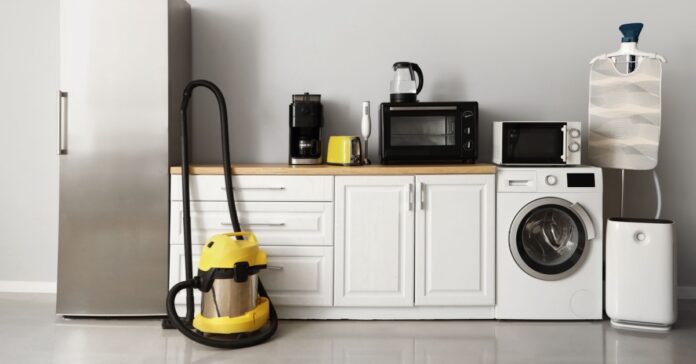
By now, I’m sure you’ve heard of, if not experienced firsthand, how the Biden administration is trying to worm its way into homes by creating new energy regulations that instruct us on what appliances we can or cannot own.
Thankfully, the House just took the first step in putting a stop to that.
According to a media release from Representative Debbie Lesko’s office, who sponsored the bill under Biden’s administration, “the Department of Energy has unleashed an avalanche of new regulations for household products, including stoves, dishwashers, washing machines, showers, toilets, water heaters, air conditioners, heat pumps, and furnaces.”
But the result has been less than beneficiary to most American homes. The “rush to green agenda,” as GOP Representative Cathy McMorris Rodger of Washington calls it, has made affordable home appliances and practices impossible for everyday Americans.
The Biden administration is waging war on American energy, and this war is making its way into Americans’ homes.
The administration is doubling down on unaffordable appliance mandates—which is why we're leading on H.R. 6921. Watch: pic.twitter.com/Y8oYpDZNJe
— CathyMcMorrisRodgers (@cathymcmorris) May 7, 2024
As Lesko continued, “No government bureaucrat should EVER scheme to take away Americans’ appliances in the name of a radical environmental agenda, yet that is exactly what we have seen under the Biden Administration.”
Like everything else, it is “out of touch” with American priorities.
And so, HR 6921 would seek to ensure that when the DOE creates new regulations or even revokes or amends them, they don’t have a negative effect on the American public.
According to the language of the bill, the DOE has the authority to “grant a petition to revoke or amend energy conservation standards if it finds that the standards (1) result in additional costs to consumers, (2) does not result in significant conservation of energy or water, (3) are not technologically feasible, and (4) result in a product (such as gas stoves) not being commercially available in the United States to all consumers.”
The bill passed in the House with 205 Republicans and seven Democrats voting for it. All those voting against it (195) were Democrats.
Now, of course, this is only the first hurdle. Next, it will be passed to the US Senate, where the chances of passing are much slimmer, given the Democratic majority of the Upper House.
But we can hope, right?







